Pharmacy manager made redundant in the pandemic became a full-time forager – nearly matching her earnings and saving hundreds of pounds on bills
A pharmacy manager who was made redundant during the first lockdown became a full time forager instead – saving £100 a month on her family food bill and even being paid to teach others her techniques.
Under constant pressure and working 50 hours a week, when Lucy Buckle, 34, lost her job as the pandemic took hold in June 2020, rather than returning to the rat race she turned a hobby she had loved since childhood into a job.
First foraging with her grandparents, aged four, Lucy, who lives with her bus driver wife Shell Buckle, 42, and their dogs Holly, 12, and puppy, Pippa, 16 weeks, in Aspley, Nottingham, said: “It wasn’t until I left my job that I realised how miserable I’d become.”
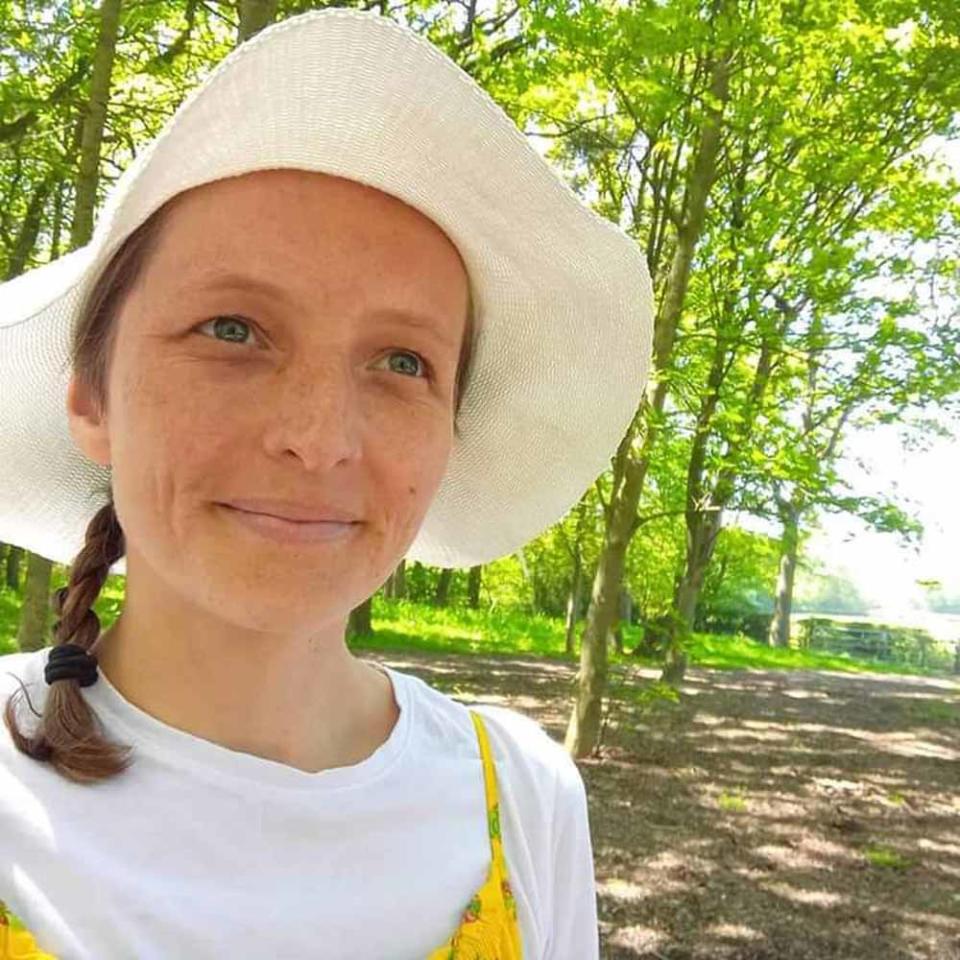
She added: “Foraging is amazing. I just pop out every morning to walk the dogs and pick up some nettles to make my tea.
“I call the local park – Broxtowe Country Park – my foraging supermarket, I just grab everything I need from it.”
Swapping business suits for comfy dungarees and a brief case for a wicker basket, she has not looked back.
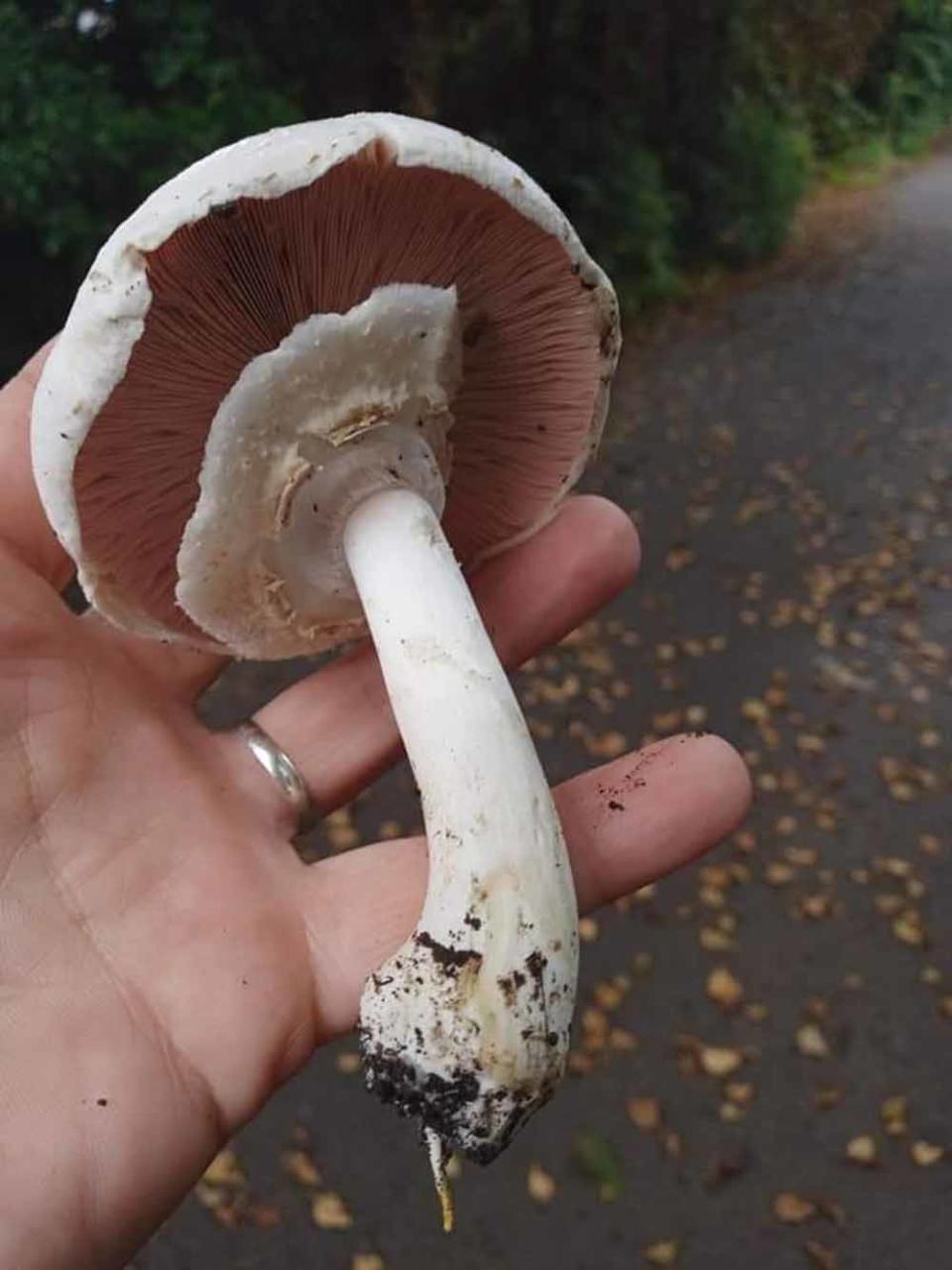
She said: “My grandparents took me foraging in Derbyshire when I was four.
“It was second nature to pick fruit and vegetables in the wild. But when I moved to the city, aged 18, it became a little harder.
“I started managing a pharmacy in 2012 and doing over 50 hours a week. I had to wear a suit every day and even wore lipstick. I didn’t feel like myself.”

She added: “I’m an active person, I’m happiest when I’m outside. So, being stuck in the office away from any natural light made me really unhappy. The whole time I just dreamed of going outside.”
One of her greatest distractions from her busy working life came in the form of an online foraging community she joined – encouraging her to take up urban foraging in 2005.
“It was amazing when I realised you could get so much in the city – along the canal bank or by the River Trent,” she said.

She added: “I don’t think people realise how much you can find. I live two miles from Nottingham city centre and I always have a basket when I go out, as you never know what you might find.
“Even if I was cycling home from work and saw a patch of mushrooms, I would stop my journey to pick them. It was exciting and I enjoyed it so much – although you do need to know what you are doing, as some things, like mushrooms, can be poisonous!
“When I was stressed working at the pharmacy, I would daydream about foraging in a forest.”

She added: “I think a part of me really wanted to leave, but I was so scared of losing the job security.
“I didn’t earn a lot for the hours I was working, but still, it was daunting thinking of not having the pay cheque at the end of the month.”
Initially, in June 2020, at the height of lockdown, when Lucy lost her £22,000-a-year job – meaning she took home around £1,500 after tax – she was scared she would not manage.
She said: “It was tough when they told me over the phone.
“I’d already seen redundancies were happening on the news, then 10 minutes later I got the call.
“At first, I felt panicked, but then I realised this was the opportunity I’d been waiting for.”
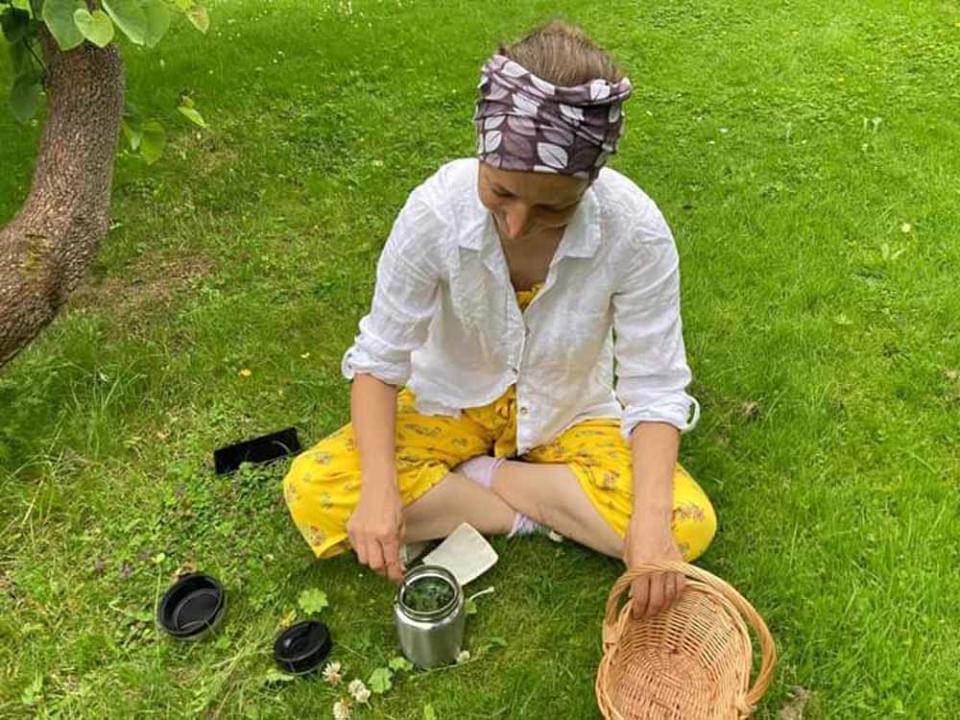
She added: “I loved being outdoors and had been daydreaming for years of running my own foraging business, so I decided to start it there and then.”
Swapping her corporate suits for dungarees, not only did Lucy reduce her household food bills dramatically, but she was also able to sell the food she foraged on private land to local companies and she started making extra money by offering classes.
She said: “Obviously, foraging is great because of the environmental impact, there’s no plastic, air miles, or pesticides attached to your food.”
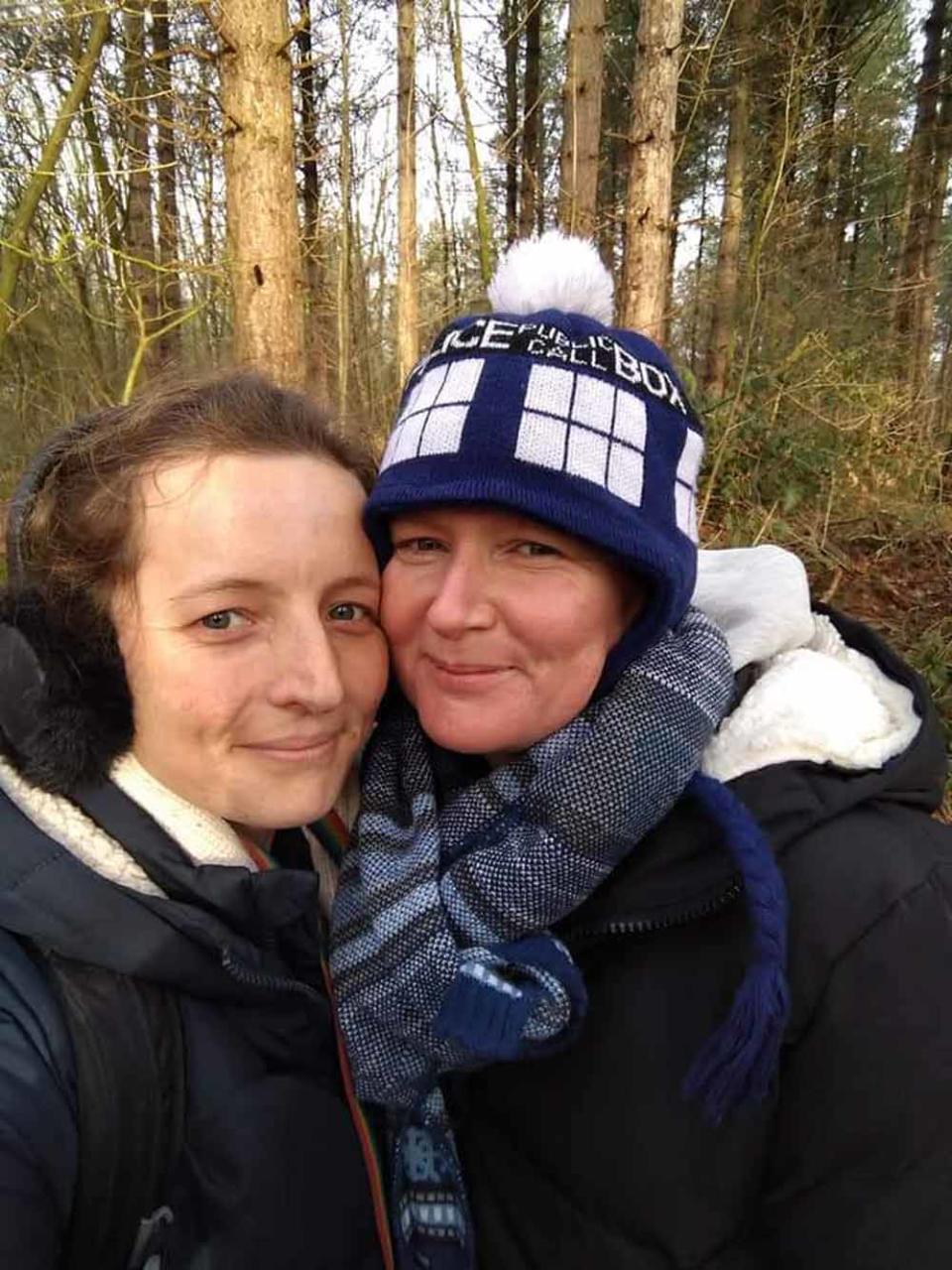
She added: “But it’s a cheaper way to live, too. Between February and October, I don’t buy any salad, I pick everything. I go to the local park and will fill a massive wicker basket with delicious finds.
“In the summer I can save at least £100 on the monthly food shop. You have to get creative and cook what’s in season, but it’s delicious. You get such a sense of pride making it yourself.”
And her foraging skills soon earned her such wide acclaim that she began giving £20-a-session foraging classes at a nearby alpaca farm, as well as giving £6.50 forest bathing classes.

If someone is interested in learning, but cannot afford to join her classes, she will also show them where to forage for a reduced rate outside the formal classes and she gives classes at a reduced rate for community groups.
While she saves £300 a month on travelling to work, as she does not drive and often took trains to conferences, she also saves the £250 a month she once spent on work lunches and takeaways.
And, through her classes and sales of forage she has found on private land, she makes on average around £1,300 a month after tax.

She said: “I started running foraging walks to share my knowledge and they just took off.
“Now I run courses like forest bathing and even work with forest schools to teach kids how to identify edible plants.
“I make dandelion crisps with them. They are delicious and a great way to get your kids doing something fun in the summer.”
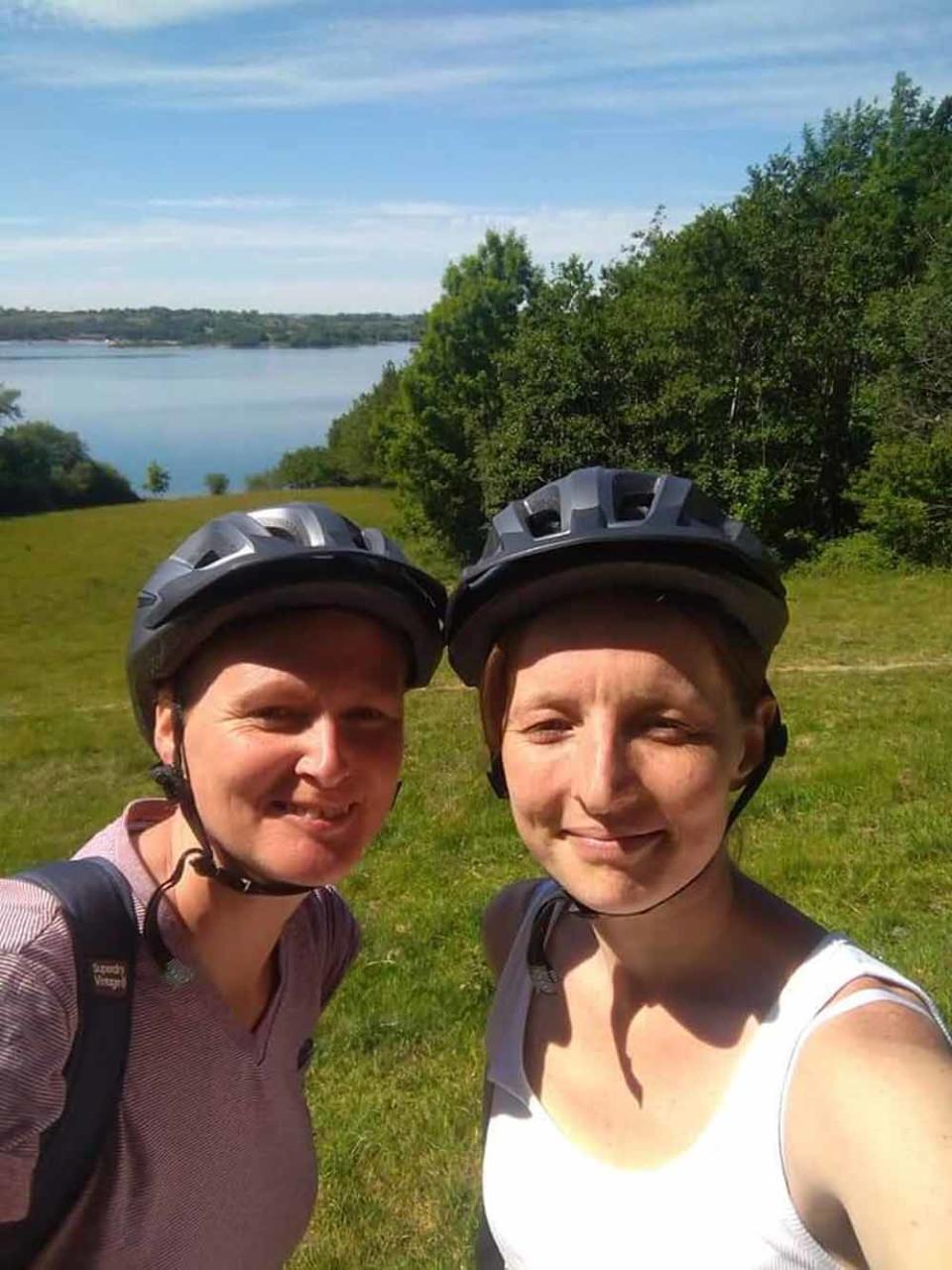
Lucy even gets her wife to spot foraging sites along her bus routes and believes they have both benefited from her dramatic career change.
She said: “There was a loss of income when I left my job, but we’ve saved so much and our expenses are so low that we haven’t noticed a big financial difference.
“Before I would be so stressed about work. Now I get up, take the dog for a walk and pick nettles for my tea and the fact I am so much happier makes me much nicer to be with.”
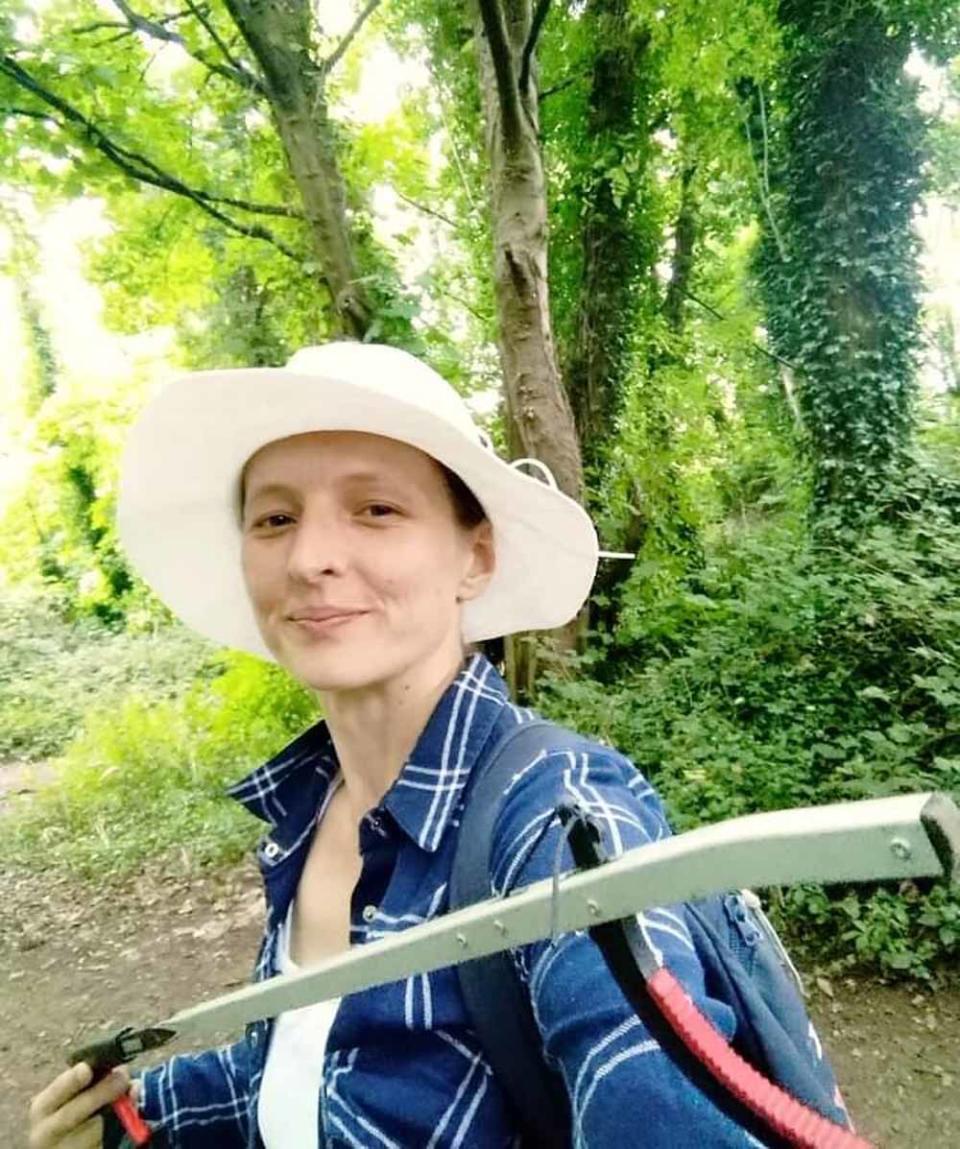
She added: “I walk the dogs twice a day and forage at the same time. It’s a lot more relaxed, there’s something amazing about just being in the forest alone.
“And I don’t need lunch money, as I take a camping stove and a frying pan with me, so I can make my lunch when I’m foraging.
“Legally, I can’t sell anything I’ve foraged on public land, but I sell produce I’ve foraged on private land, like elderflowers, to a popsicle company and wild food to a local restaurant.”
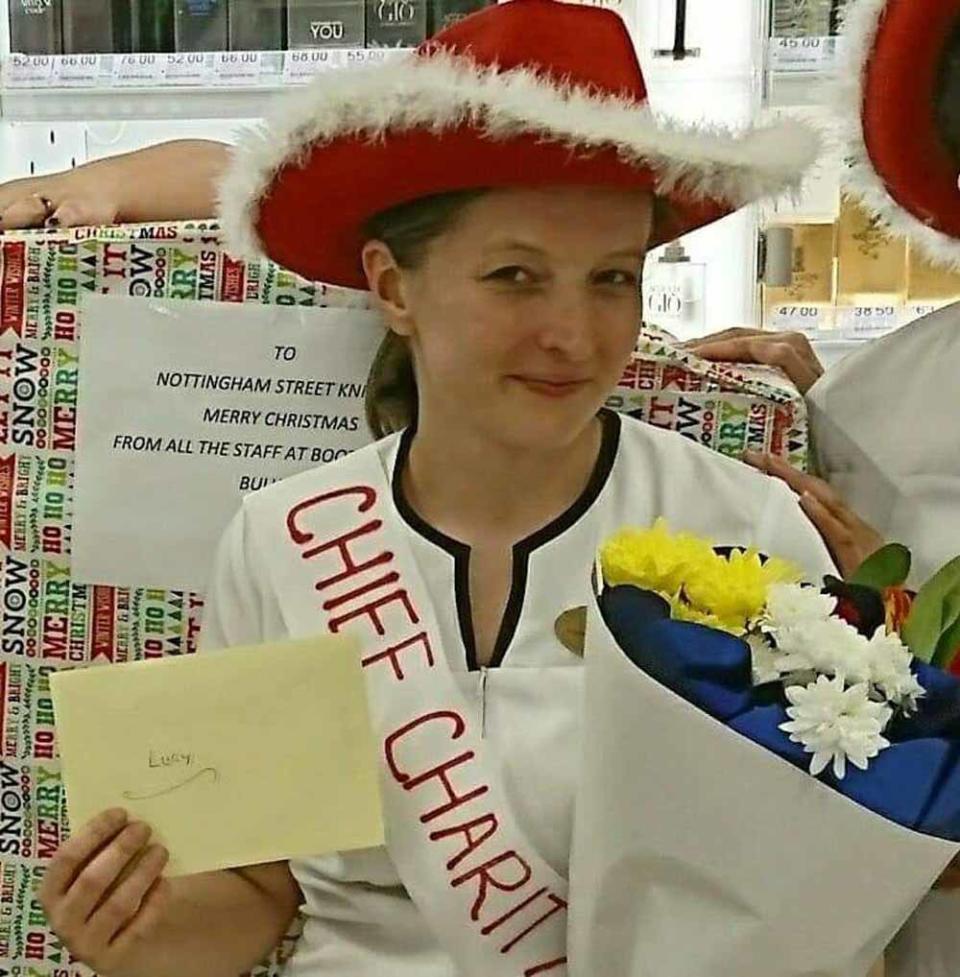
Her new job has also made her more creative in the kitchen – swearing by pine needle tea, sticky weed hangover cures and seed drinks.
“There are lots of things you can forage that people don’t even know you can eat,” she said.
“Pine needles make a lovely tea if you brew them in hot water. I like to start my day with that.”

She added: “My top tip is to use sticky weed, it’s very nutritional and makes a fantastic hangover cure.
“Before you go to bed soak the weed in water in the fridge. When you drink it in the morning, it will just get rid of your headache.
“I even make a caffeinated drink out of seeds of the sticky weed plant, as they’re really high in caffeine.”
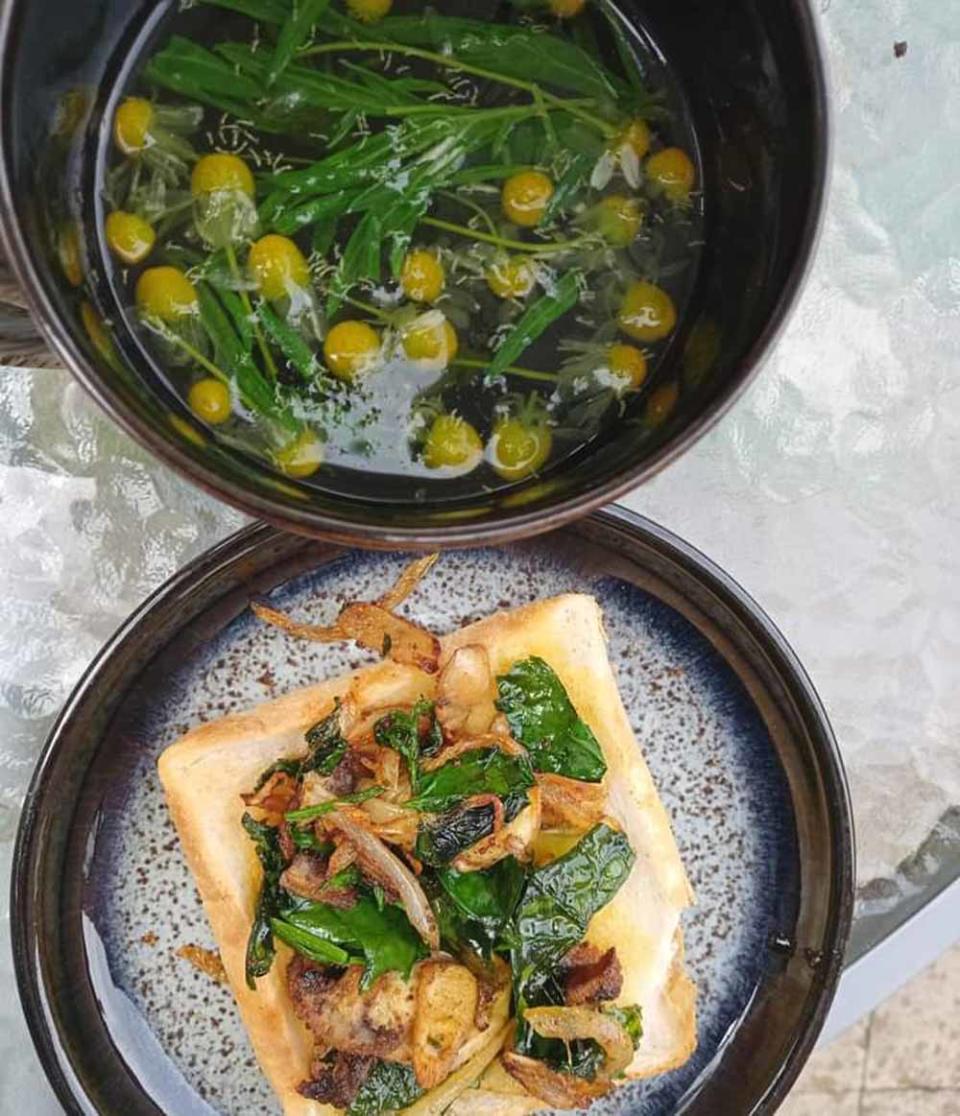
She added: “Foraging changes the way you live and eat.
“Shell and I eat seasonally now. Obviously, in the winter months it’s a bit more scarce and we’re more dependent on the supermarket.
“But from February onwards, we really don’t need that much as we have so much locally.”
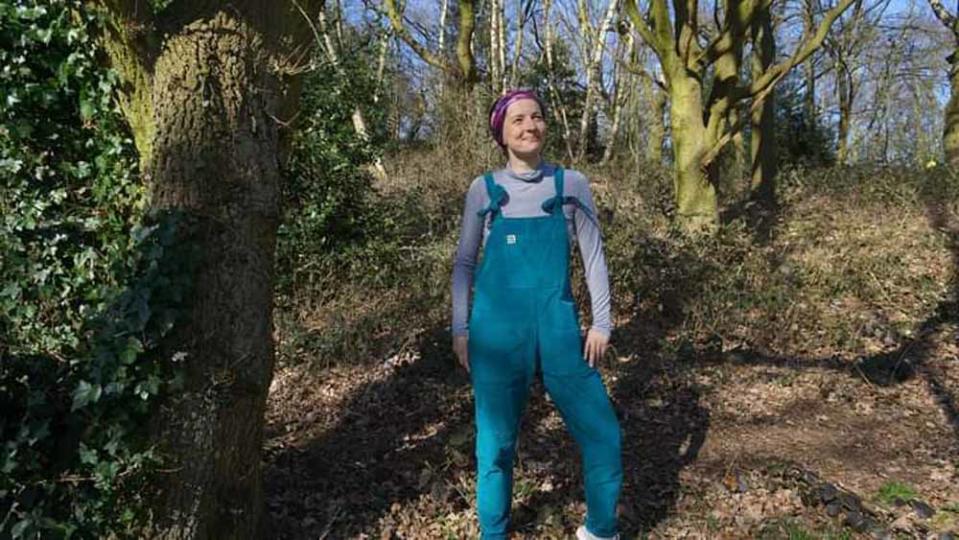
Living the dream, as she forages everywhere from canal paths to alongside the River Trent, Lucy could not be happier.
She said: “You’d be surprised by what you can find.
“I once found 40 Penny Bun mushrooms in one plot by the River Trent and they are hard to find. I took a basket full home.”
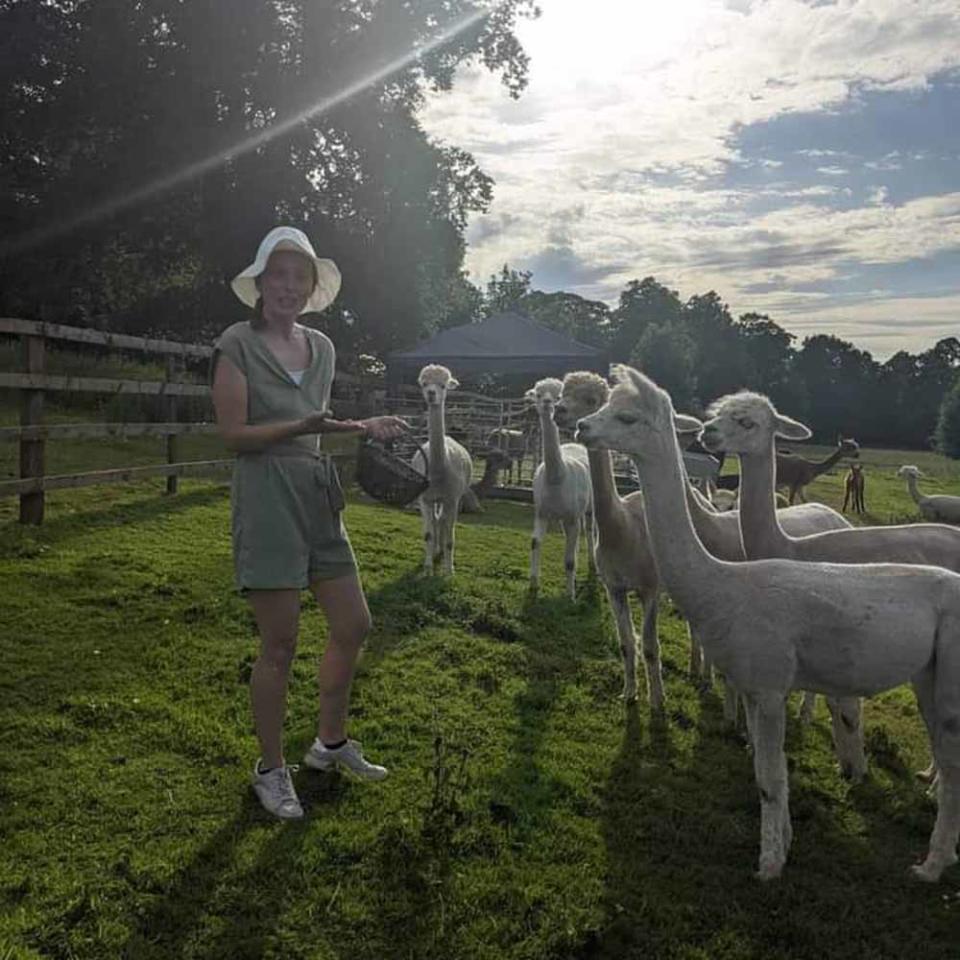
She added: “I think if you’re interested in foraging, just give it a go, but make sure you know what’s safe.
“Even just taking the kids out blackberry picking is foraging.
“I was exhausted all the time in my job.”
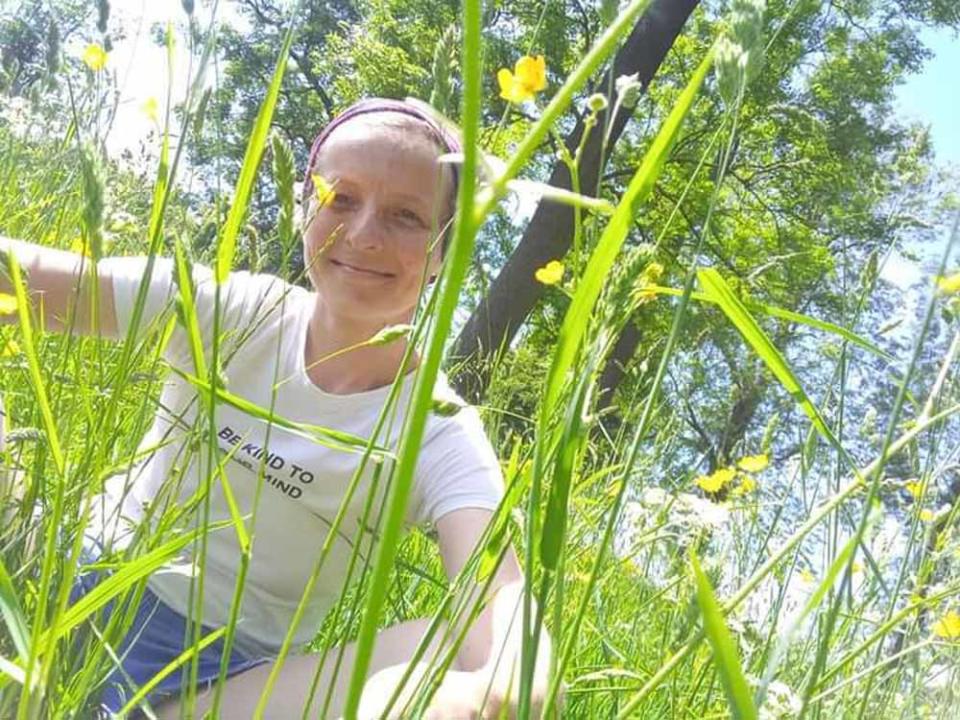
She added: “But being made redundant was the best thing that ever happened to me. Now I spend my days in the forest. I’m living the dream.”
Lucy’s Foraging Calendar:
January – Winter mushrooms such as jelly ears and velvet shanks
February – Nettles, great for tea and hedge garlic, great in salads
March – Wild garlic, good for beginners, makes a fantastic pesto
April – Sticky weed, salad leaves,
May – Wildflowers such as borage, tastes like cucumber, great in a gin and tonic or salad. Nasturtium are also edible, you can eat the leaves and flowers, they look beautiful and make a fancy salad
June – Elderflower, great for beginners and kids, makes cordial. Mushrooms are good in June also.
July – Cherries, lots of cherry trees in Nottingham on every street corner, they are the first fruit you can harvest in the summer
August – month of fruit, great picking month for blackberries and plums, which are good to start with as all types are edible.
September – Month of the mushroom. Especially great for boletes a type of mushroom.
October – Great month for blewits, a nostalgic mushroom most people foraged with parents or grandparents. Easy to identify but only available for a few weeks in the month.
November – Pine needles for tea.
December – Nettles and winter mushrooms, three cornered leek, like an onion, it’s an invasive species so you can pick as much as you want.
Lucy’s top foraging tips:
* Don’t munch on a hunch – always be sure to identify what it is clearly and if you do not know, do not eat it.
* Start with what you know – get a good guide book. Lucy recommends Wild Food UK foraging pocket guide book
* Start exploring close to home – forage locally, so you can keep an eye on the seasonal produce.
* Be respectful – always leave 75 per cent of potential forage behind for the plant and for fellow foragers. Try to pick up litter as you forage and leave the park in a better state then you found it to say thank you

 Yahoo Sport
Yahoo Sport 





































